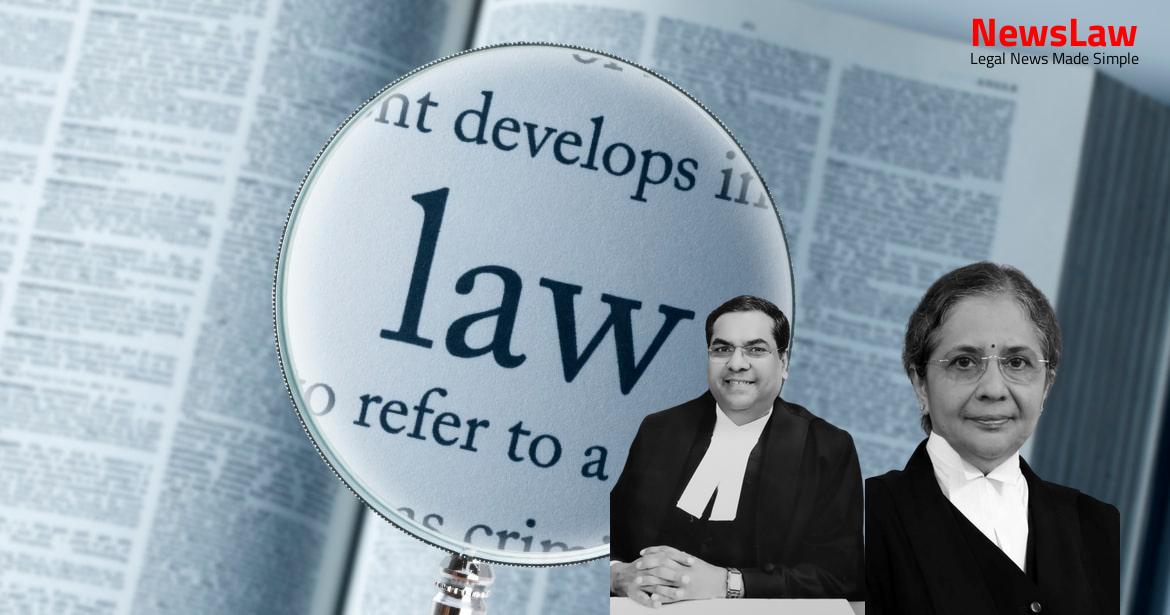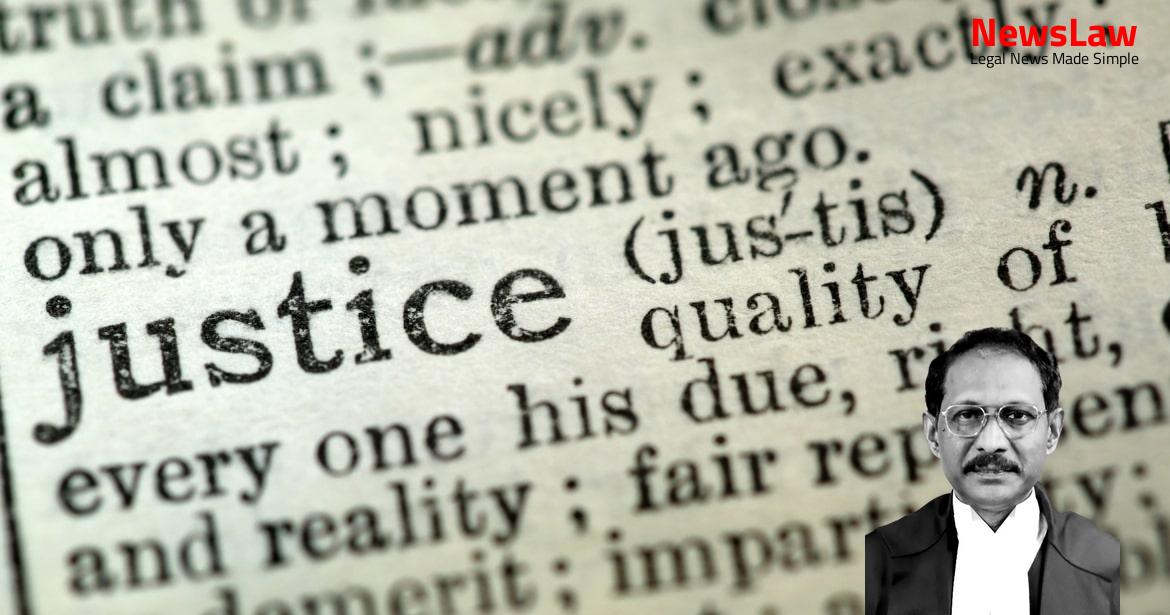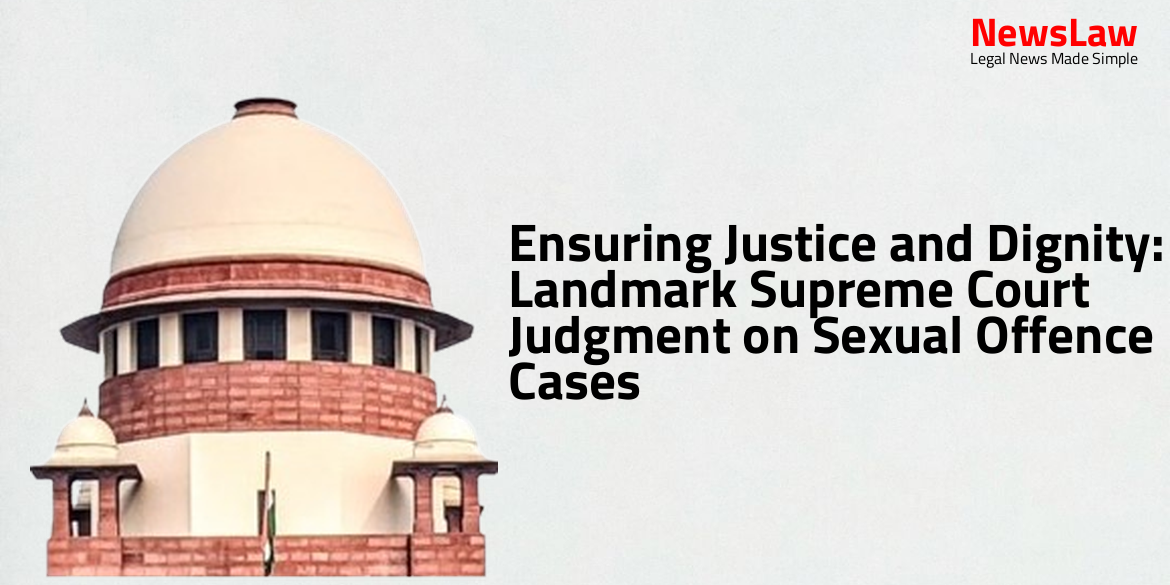Explore the nuances of vicarious liability and the legal requirements for prosecution under Section 141 of the NI Act in this detailed analysis. The court delves into the specific criteria that must be met for individuals to be held liable, emphasizing the importance of determining the responsibility for a company’s business conduct. Follow along to understand the complexities of legal accountability in business scenarios.
Facts
- The relevance of each particular piece of evidence must be assessed within the context of the entire case.
- The trial judge has to consider whether the evidence is sufficiently relevant and reliable to meet the requirements of admissibility.
- The trial judge must determine whether the evidence has probative value that is not substantially outweighed by its prejudicial effect.
- The trial judge must consider the impact of the evidence on the fairness of the trial and whether its prejudicial effect substantially outweighs its probative value.
Also Read: Analysis of Bail Conditions in Criminal Appeal No. INSC 48/2024
Arguments
- Bank of Baroda granted term loans and cash credit facility to M/s. Global Packaging on 04 October 2012 for Rs. 6,73,80,000/-
- Three cheques of Rs. 25,00,000/- each issued by the Firm were dishonoured on presentation due to insufficient funds
- Demand notice under Section 138 of the NI Act was issued to Simaiya Hariramani on 04 November 2015
- Complaint under Section 138 of the NI Act was filed against Simaiya Hariramani and the appellant by the respondent Bank on 07 December 2015
- The Firm was not made an accused in the case
Also Read: Conviction Upheld for Murder and Concealment of Body
Analysis
- Vicarious liability under Section 141 of the NI Act does not apply if the person did not meet the criteria of being ‘in charge of and responsible to the company for the conduct of its business.’
- A partner in a firm is not vicariously liable for an offence committed by the firm unless specific requirements are met and proven by the prosecution.
- The prosecution bears the burden of proving that the accused was in charge and responsible for the company’s business conduct.
- A firm must be arraigned as an accused for a prosecution under Section 141 of the Act to be valid according to legal requirements.
- Not all directors are automatically liable under Section 141; liability is specific to those in charge of the company’s day-to-day business operations.
- The onus to satisfy the proviso and criteria in Section 141 lies on the accused individual.
- The Firm must be implicated in the offence for vicarious liability to be applicable.
- Personal conduct or neglect by directors, managers, or officers of the company can trigger vicarious liability under Section 141.
- The prosecution’s initial onus to establish requirements under Section 141 precedes the accused’s burden to prove innocence under the proviso.
- Failure to properly mention the firm in a complaint does not invalidate the prosecution against partners for the firm’s actions.
- Criminal liability under Section 141 only applies to those in charge and responsible for the business at the time of the offence.
- Vicarious liability can be inferred against a company registered under the Companies Act, 1956 only if specific statements are made in the complaint/petition
- Vicarious liability must be pleaded and proved, not inferred
- The person being made liable must be in charge of and responsible for the business conduct of the company at the relevant time
- Persons nominated as Directors by the Central or State Government are not liable for prosecution under certain circumstances
- Section 141 of the NI Act deems persons responsible for the business conduct of a company guilty if an offence is committed by the company
- Vicarious liability extends to officers associated with the company if certain conditions are met
- Section 141 of the NI Act also addresses the liability of directors, managers, secretaries, and other officers if an offence has been committed with their consent, connivance, or neglect
- The decision in Anil Hada is considered incorrect as it suggests prosecuting a Director without involving the company.
- Partners of a firm can be held liable for offenses committed by the firm if they were in charge of the business.
- Interpretation of ‘a person in-charge and responsible for the conduct of the affair of a company’ from Section 23-C of Foreign Exchange Regulation Act and Section 34 of Drugs and Cosmetics Act.
- The case of Aneeta Hada settled the controversy regarding the prosecution of a director or partner without prosecuting the company.
- The test for a director in-charge or a partner in charge of a firm’s business is the same.
- The exception to prosecution when there is a legal impediment for prosecuting a company is not applicable in the present case as per Aneeta Hada.
- Reference to Explanation to Section 34 of Drugs and Cosmetics Act regarding the definition of ‘company’ and ‘director’ in relation to a firm.
- The responsibility of a director, manager, and other officers in the business hierarchy of a company or firm.
Also Read: 1991 Decree Invalid: No Determination of Rights in Property Dispute
Decision
- The appellant’s conviction under Section 138 read with Section 141 of the NI Act is set aside.
- The impugned judgment of the High Court and lower courts confirming the conviction and sentence are also set aside.
- No costs are ordered in this decision.
- Any bail bonds executed by the appellant are to be cancelled.
- The appellant is acquitted.
Case Title: DILIP HIRARAMANI Vs. BANK OF BARODA (2022 INSC 539)
Case Number: Crl.A. No.-000767-000767 / 2022



